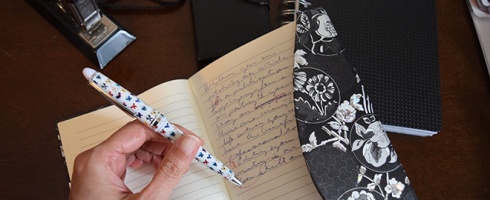Whether you are pitching an article to a publication, applying for a job or posting to your own blog or business website, there are many times in life where you won’t have the benefit of a professional editor.
Editing your own writing is an essential skill for work and life, regardless of your profession. Here are some tips for polishing your work before you hit send or publish.
Use a good spelling and grammar checker
Sometimes the spellcheck built into your word processing program will fail you. Consider installing Grammarly, which will catch more errors, even with the free version.
Have a checklist
Think about the errors you commonly make. This could be using “their” when you mean “there” or spelling people’s names wrong. Create a checklist so that your editing is consistent.
Edit out unnecessary words and phrases
One of the biggest mistakes new writers make is to add lots of words to sentences. At some point in our education, we must have been taught that we need a big vocabulary to sound intelligent and we need to use all the words in that big vocabulary at the same time. In reality, being able to write clearly and concisely will benefit both you and your reader in the long term.
Hint: A good place to start is with the adverbs.
Print it out or read it out loud
In these days of environmental awareness, people try to limit their printing, but printing items out in hard copy can make them much easier to read and edit. Also try reading your work out loud as you go or once you finish writing. Reading out loud will not only test the readability and flow of your piece, but it also makes it harder to scan over your mistakes.
Slow down and magnify
Have you ever watched a child move his or her lips while reading? This is because, as a beginner, they are being careful to read each word. As we become advanced readers, we don’t focus on the words as much as we focus on the meaning. We stop worrying about letters and syllables and start scanning. We recognize the shapes of words and we fill in information through the context. When you read for the purpose of editing, it will help to read each word, even if you are only saying it in your head. You don’t actually need to move your lips if you think your coworkers will make fun of you. Zoom in magnify the words and punctuation.
Fact check
When you are writing the first draft, you may think about looking things up, such as the spelling of a name, the population of Canada, or the world’s largest river, but in the excitement of finishing the draft, you forget all about it. Take the time to double check every name (except possibly your own), date, number and fact in your article.
Do you need to (wo)mansplain anything?
You know your stuff, but think about how familiar your topic is to the reader. They may not get all the references in your piece. Explain anything that isn’t obvious. For example, you may decide to include a quote by John A. Macdonald and assume that everyone knows he was the first prime minister of Canada. However, unless you know that your article is only going to be read by people who either received at least part of their education in Canada or who took the citizenship test, there is a good chance that some readers will not know who he was.
Consistency
You are going to need to make decisions before you start writing. These include:
- Canadian or American spelling
- First, second or third person
- Do you use a comma before “and” when listing more than two items?
- How do you refer to someone on second reference? Should you use “Mr.”, “Mrs.” or “Ms”? Is this an informal piece where you can use first names throughout?
Whatever decisions you make, use the same style consistently.
Read widely
The more you read the better you will become as a writer and the easier it will be to edit your work.
You can follow all of this advice and still find mistakes. If you have the opportunity, ask someone else to read your work.
Always strive to submit clean copy and the perception of your value as a writer will increase with editors, blog managers and bosses.
If you are an entrepreneur, I’m running a free five-day copywriting challenge just for you. This challenge is all about website copy with a in-depth copywriting session at the end. You’ll polish the main pages of your website and walk away with some general principles that you can use in your everyday business writing. I’d love to see you in the challenge. Sign up here.
